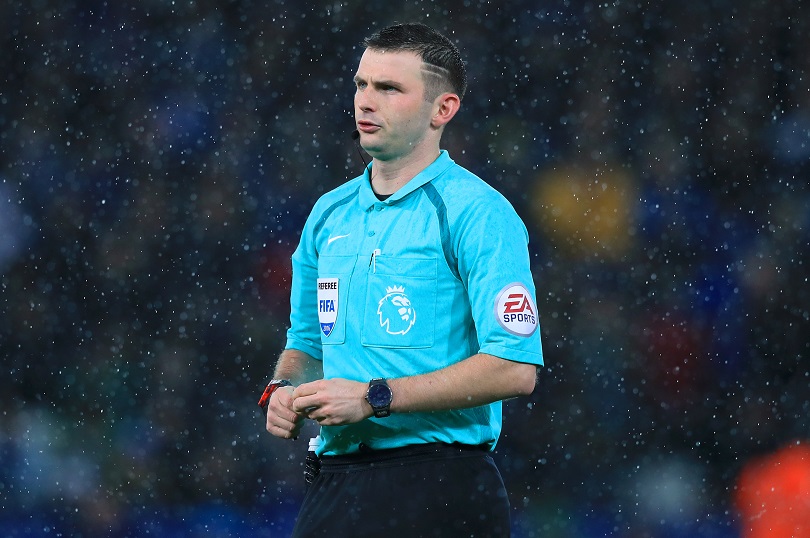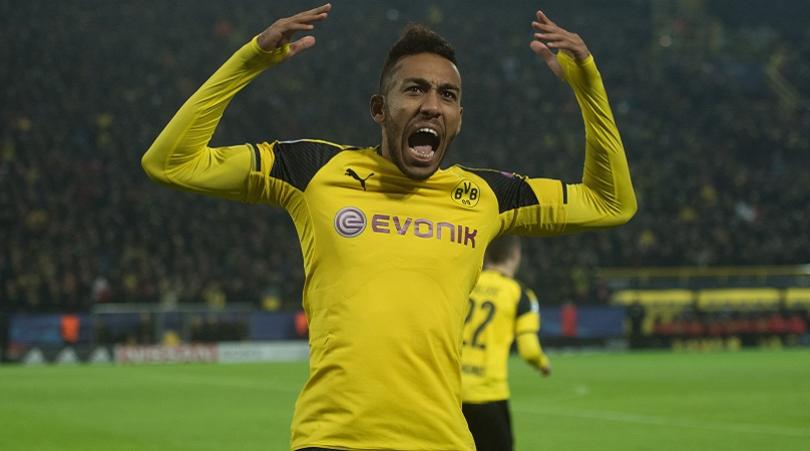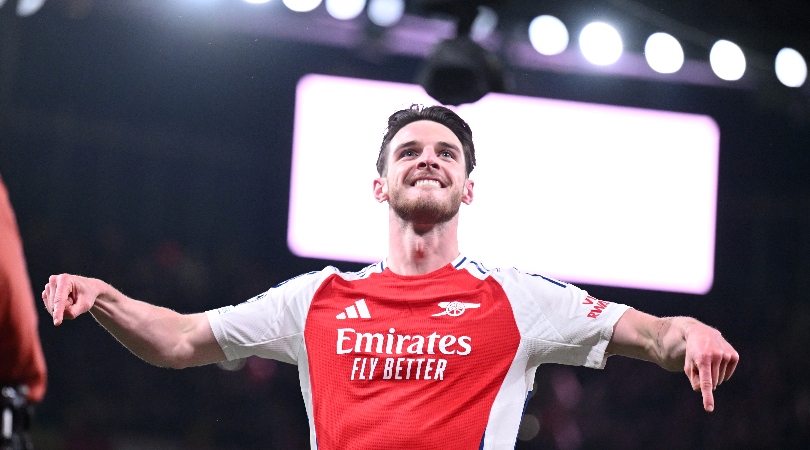Football fans are being shortchanged when it comes to broadcasters' post-match analysis
Alex Hess argues that pundits spend too much time focusing on the actions of match officials
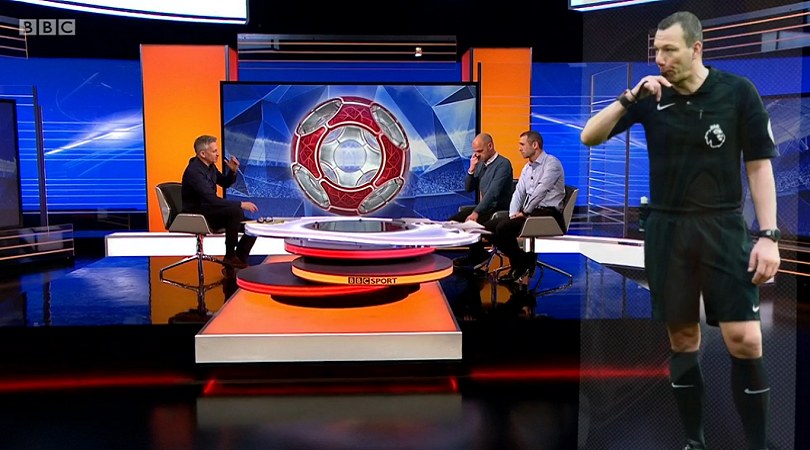
It’s hard to think of two games that have better showcased football’s bizarre, almost magical ebb-and-flow quality than this week’s headline Champions League ties.
Both Arsenal’s debasing arse-smacking by Bayern Munich, and then, even more absurdly, Barcelona’s mind-bending fightback against PSG displayed the sport’s raptures and rhythms in full technicolour: five goals in half an hour on Tuesday night, three goals in six minutes the evening after. That the latter prompted professional miserablist Roy Keane to willingly declare, live on TV, that he "appreciates and loves the game so much" should be proof enough of this week’s seismic nature.
Even professional miserablist Roy Keane willingly declared, live on TV, that he "appreciates and loves the game so much"
The two games were extreme examples of a broader point: that every football game is essentially an intricate tangle of tactics, momentum, psychology, technique, nerve and, not least, sheer luck. Then there are the decisions of the referee. All these factors, taken together, contribute to the outcome of a game. So why is it that the ensuing media coverage is so intent on devoting so much focus to the officiating?
Any long-time watcher of the UK’s televised Premier League football in its two main forms – Sky Sports’ (and latterly BT Sport’s) live broadcasts and Match of the Day’s highlights programme – will be well acquainted with the precedence that even the most vaguely questionable refereeing decision takes above all else when it comes to the pundits’ post-match breakdown.
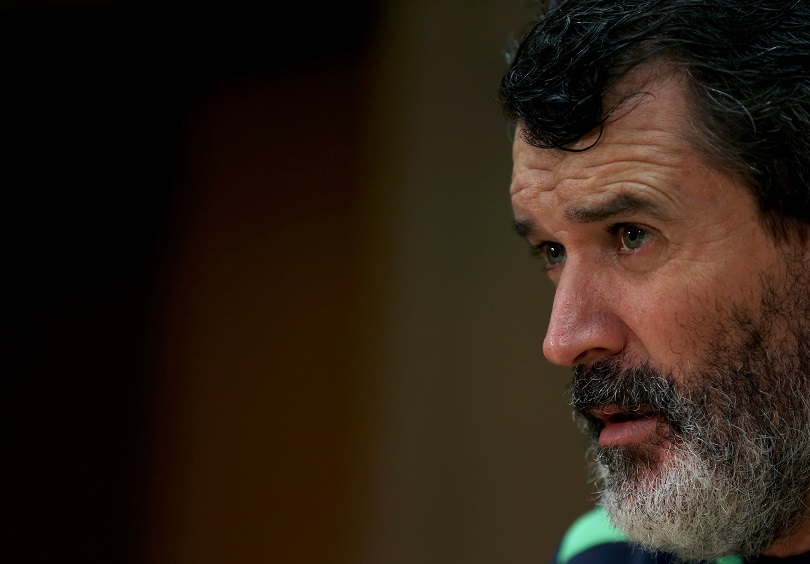
No time for the football
Surely there were viewers who would have liked to hear a bit more about Bournemouth's display, even if it meant sacrificing some of the slow-motion violence
Sometimes this is justified – such moments can indeed swing games, or seem to, and in those cases their importance needn’t be downplayed. But equally, football’s all-consuming obsession with the minutiae of officiating can leave a false impression that the players are simply passive participants in a game whose result is largely dictated by the wants and whims of the men in black.
Last Saturday, MOTD’s highlights of Manchester United vs Bournemouth were followed by an extended breakdown of the various moments of horseplay between Zlatan Ibrahimovic and Tyrone Mings – a head-stamp here, a bludgeoned cheekbone there. Nothing too wrong with that: the incidents went above and beyond your average on-field tête-à-tête and absolutely warranted attention.
Get FourFourTwo Newsletter
The best features, fun and footballing quizzes, straight to your inbox every week.
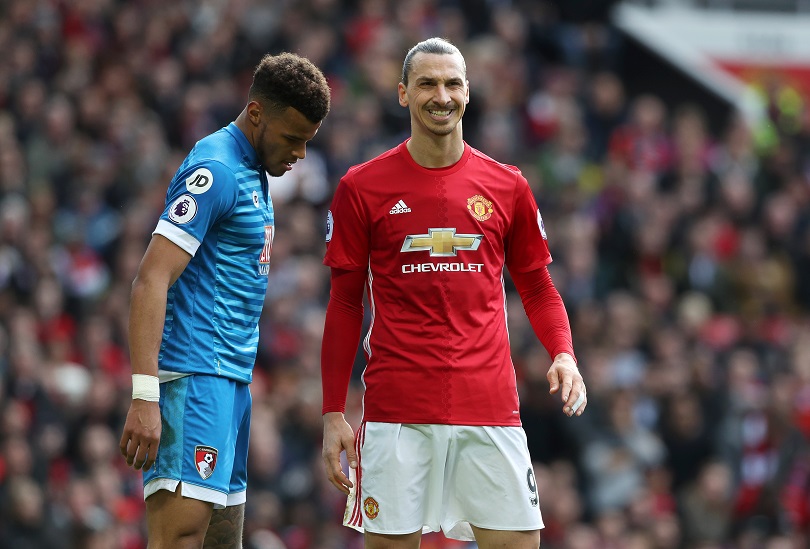
But once frame-by-frame footage of each clash, plus the sending off of Andrew Surman, had been pored over and fetishised like the Zapruder film, there was time for nothing but a single, 12-second exchange lauding Bournemouth’s “fantastic” display. Surely there were viewers who would have liked to hear a bit more about the latter, even if it meant sacrificing a minute or so of the slow-motion, late-night violence that was more John Woo than Jordon Ibe.
The week before that, analysis of Chelsea’s win over Bournemouth led with a mildly iffy handball call – a moment that, perhaps not coincidentally, was adjudged in the preceding interview with Sean Dyche to have been the game’s turning point. Of course, Dyche had a vested interest in such a narrative playing out on the country’s televisions; the BBC, notionally, did not.
Pointing the finger
It has become commonplace for Sky’s Sunday afternoon broadcasts to descend into extended bouts of nitpicking over a referee’s decision-making
At this stage it should be said that each edition of MOTD is, to this writer at least, a bona fide masterwork of broadcasting: curated, edited and performed all within a few short hours and almost exclusively without the merest hint of a hitch. Trying to please all of the football fans all of the time is a task well beyond human capability even before you consider that the analysts have just minutes, sometimes seconds, to discuss a whole game.
But while it’s inevitable that large elements will go unmentioned, the wilful priority granted to isolated incidents can seem disproportionate.

Sky’s Monday Night Football is, broadly speaking, a decent antidote to this. With far more time both on air to broadcast, and off air to compile and rehearse the analysis, the final product tends to be one that dissects the weekend’s football on both a micro and macro level, and the officiating generally taking a back seat to each game’s purer sporting factors.
Sky’s Sunday afternoon broadcasts to descend into extended bouts of nitpicking over a referee’s decision-making after a beaten manager has set the agenda
But in their more straight live broadcasts, Sky are as guilty as anyone when it comes to overstating the importance of officiating. Again, the analysis tends to take the lead from the post-match interviews – which more often than not cast a spurious finger the way of referees. It has become commonplace for Sky’s Sunday afternoon broadcasts to descend into extended bouts of nitpicking over a referee’s decision-making after a beaten manager has set the agenda with an interview carried out full in the knowledge that blame shared is blame halved.
A cynic might point out that such controversy does no harm to the narrative drama of the Premier League product, which Sky currently shell out just north of a billion pounds a year for – even if it has put paid to the old maxim that the best referees are the ones that go unnoticed. These days, the notion of a referee going unnoticed exists as a fundamental paradox, like a deep-sea creature taking a stroll along the shoreline.
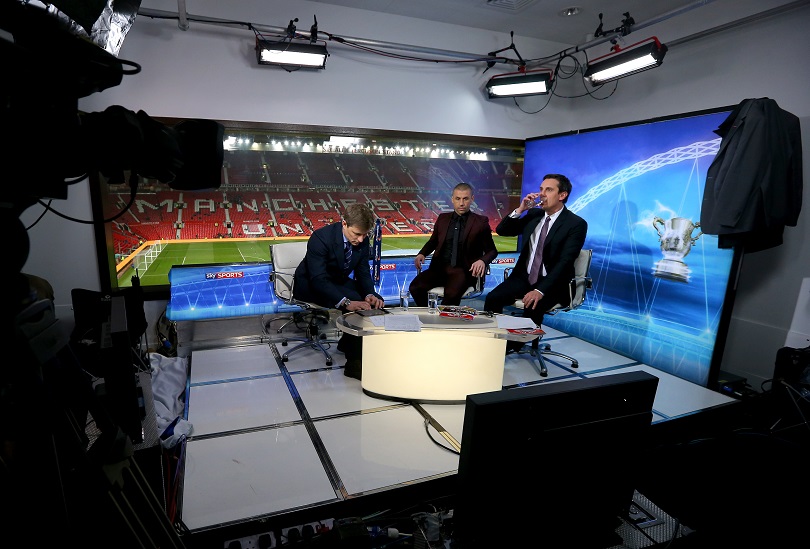
Misinterpreting the game
For the BBC, scrutiny of officials seems less a case of contrived controversy than simple obligation, but the ultimate effect is broadly the same: a 90-minute match-up of skill, fitness and character too often reduced to a tale of a handful of third-party judgment calls.
Not only does this seem rather joyless – and, given the inherently subjective nature of the decisions and the back-and-forth format of the discussions that ensue, kind of pointless – but it also encourages us to understand football in a needlessly blinkered and boiled-down way.
If this week has taught us one thing beyond the fact that Roy Keane is capable of compassion after all, it’s that football matches are weird, unknowable and occasionally utterly extraordinary events. They are rarely – if ever – the linear, cause-and-effect, heroes-and-villains stories peddled by the fascination with referees.
Football, for the most part, is trivial and inconsequential. But our understanding of it informs the way we understand other, broader, less trivial things – which can seem like something worth bearing in mind at a time when truth, or the very least nuance, is being lost under an avalanche of simplification and gormless knee-jerk outrage.
The referees make decisions, sure – but they don’t decide games. Not on their own, anyway.
